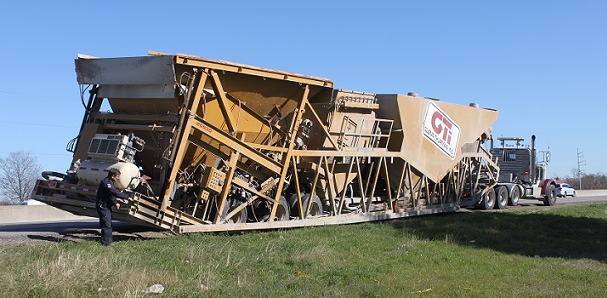Commercial Vehicle Enforcement
Due to an increase in truck traffic in the North Central Texas region, safety has become a central concern for those who monitor goods movement. To address safety concerns, the NCTCOG Transportation Safety Program has worked with commercial vehicle enforcement agencies over the past three years to support enforcement efforts and develop projects and programs that reduce the number of crashes on our regional roadways.
Commercial Motor Vehicle Violations: Enforcement, Prosecution, and Reporting
NCTCOG, in partnership with the National Traffic Law Center at the National District Attorney’s Association (NDAA), hosted two virtual two-hour Commercial Motor Vehicle Violations training courses on May 18 and 19, 2021 to over 60 individuals in a virtual environment. The interactive course is designed to provide prosecutors, judges, and law enforcement officers with a better understanding of commercial vehicle regulations and commercial drivers’ licensing laws. The training serves as a basic introduction for those who handle cases related to commercial drivers’ licenses and commercial motor vehicles.
For more information about future training, to propose a commercial motor vehicle related training topic, or to request materials from the Commercial Motor Vehicle Violations training, please contact Kevin Kroll.
Commercial Vehicle Enforcement Equipment and Training Program
One such project is the Commercial Vehicle Enforcement (CVE) Equipment and Training Program, which will increase the enforcement of overweight commercial vehicles and create a level playing field for trucking agencies that follow weight regulations. Overweight vehicles become a safety concern when their load exceeds the truck and/or trailers design limits. Additionally, these overweight trucks can cause expensive damage to roadways and bridges, as well as exceed regional air quality standards.

Data Exchange System
Following feedback from CVE officers, NCTCOG coordinated with the Texas Department of Public Safety (DPS), which developed a data exchange web tool that now allows CVE officers to access prior violation data for commercial vehicle operators in real-time at the scene of the motor vehicle stop or inspection location. Having access to this data allows CVE officers to make decisions based on up-to-date information about the trucking operator’s previous citations which may have occurred in another jurisdiction. Previously this information was only available if an officer called into the Texas DPS and requested the operator’s citation and violation history, which could be a lengthy process.